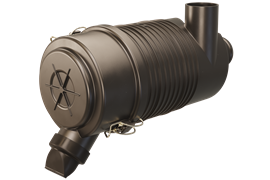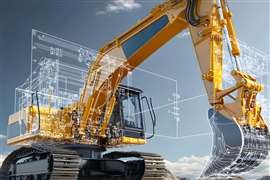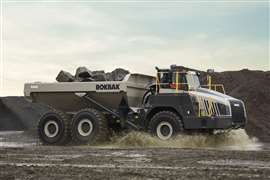Why a major contractor wants statutory suicide awareness training for construction workers
10 May 2023
 Image: Adobe Stock
Image: Adobe Stock
Mental health disorders present an invisible danger to construction levels and ought to be considered as a risk factor alongside higher-profile risk factors like slips trips and falls.
That’s the view of the chairman and chief executive of major US contractor Suffolk, Frank F. Fish.
Fish has called on the country’s workplace health and safety body OSHA to introduce statutory suicide awareness and prevention training.
In a letter to Douglas L. Parker, assistant secretary of labor for occupational safety and health, Fish warned that more construction workers die from suicide annually in the US than every other workplace-related fatality combined.
He wants to see OSHA include suicide awareness and prevention training as a core requirement in the OSHA 10 and OSHA 30 curricula.
Those are training programmes for workers in hazardous industries, including construction, that offer basic and advanced training about common safety hazards over 10- and 30-hour courses.
The letter was co-signed by Brigadier General (Ret.) Jack Hammond, executive director of Home Base, a non-profit organisation that offers free clinical care, wellness and education to war veterans and their families.
A significant proportion of war veterans take up careers in construction after their service and are more susceptible to mental health issues than the general population.
Explaining the reasoning behind the call, Fish and Hammond said, “Construction workers operate at a crossroads of multiple suicide risk factors, including high psychological stress levels, emotional exhaustion, a widely accepted culture of self-reliance, physically demanding work leading to chronic pain, and elevated usage of non-prescription opioids and alcohol.
“In addition, more than 15% of veterans enter the construction industry after completing their service. Veterans have a 50% higher rate of suicide than the general population, making veterans in construction a particularly vulnerable group.”
They argued that proper training, education, and mental health treatment could play an important role in suicide prevention in the industry.
The call from the contractor, which has a $4.5 billion annual turnover and employs 2,400 people, comes amid growing awareness of the issue of mental health in the industry.
A 2020 study published by the Centers for Disease Control and Prevention (CDC) showed that construction work ranks second highest in suicide rates among major industries in the US.
Meanwhile in the UK, suicide among construction workers hit its highest rate in 2021 since records began, with 507 deaths by suicide among people in construction occupations. That equated to a rate of 34 per 100,000 in employment.
Suffolk’s letter added, “Together within our construction industry, and with the help of experts like OSHA, we must prioritise fostering a widespread culture of support and transparency regarding mental health.
“We believe that with increased training, awareness and resources, we can create a safer and more supportive environment for every worker operating in our industry.”
OSHA has been contacted for comment.
Mental health issues ‘misrepresented and underserved’
In a separate move, New York-based contractor Tri-Star Construction Corp has started to offer free access to text-based mental health support to its employees.
It is the first construction company to adopt Counslr, a mobile-based app that offers unlimited text sessions with licensed counsellors, around the clock.
Explaining the decision to adopt the technology, vice president of operations at Tri-Star, Douglas Dupas told International Construction, “We feel strongly that it [mental health] is a misrepresented and underserved part of the industry and we are hoping to be a leader in changing the narrative.
“The traditional taboos of discussing mental health and stress have always connotated weakness or a breach of confidentiality that people are reluctant to share with their fellow co-workers on a daily basis.”
Dupas said that employees at Tri-Star had welcomed the tool and found the ability to access it from the privacy of their homes as a “huge relief to many”.
Josh Liss, chief executive of Counslr, added, “Mental health and overall wellbeing have become increasingly high priorities for organisations across various industries, indicating more than ever that mental health knows no boundaries. It doesn’t matter who you are or what you do for a living. Mental health impacts all of us.
“This rings even more true for those in the construction business – from site workers to management, we want to provide a different level of support for anyone who may be impacted by stressors in their lives, especially by their line of work.”





